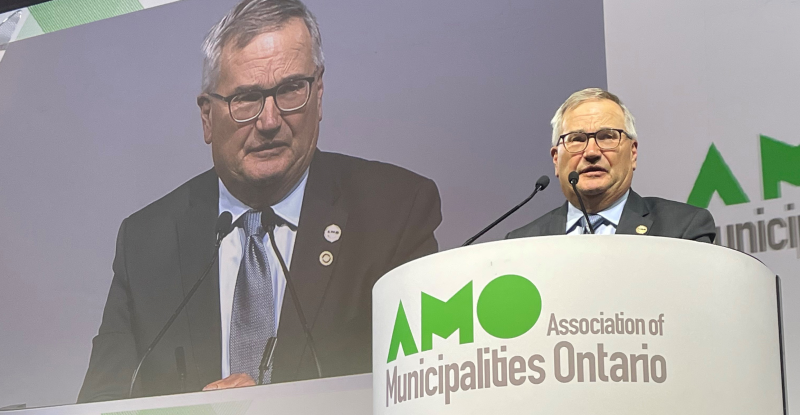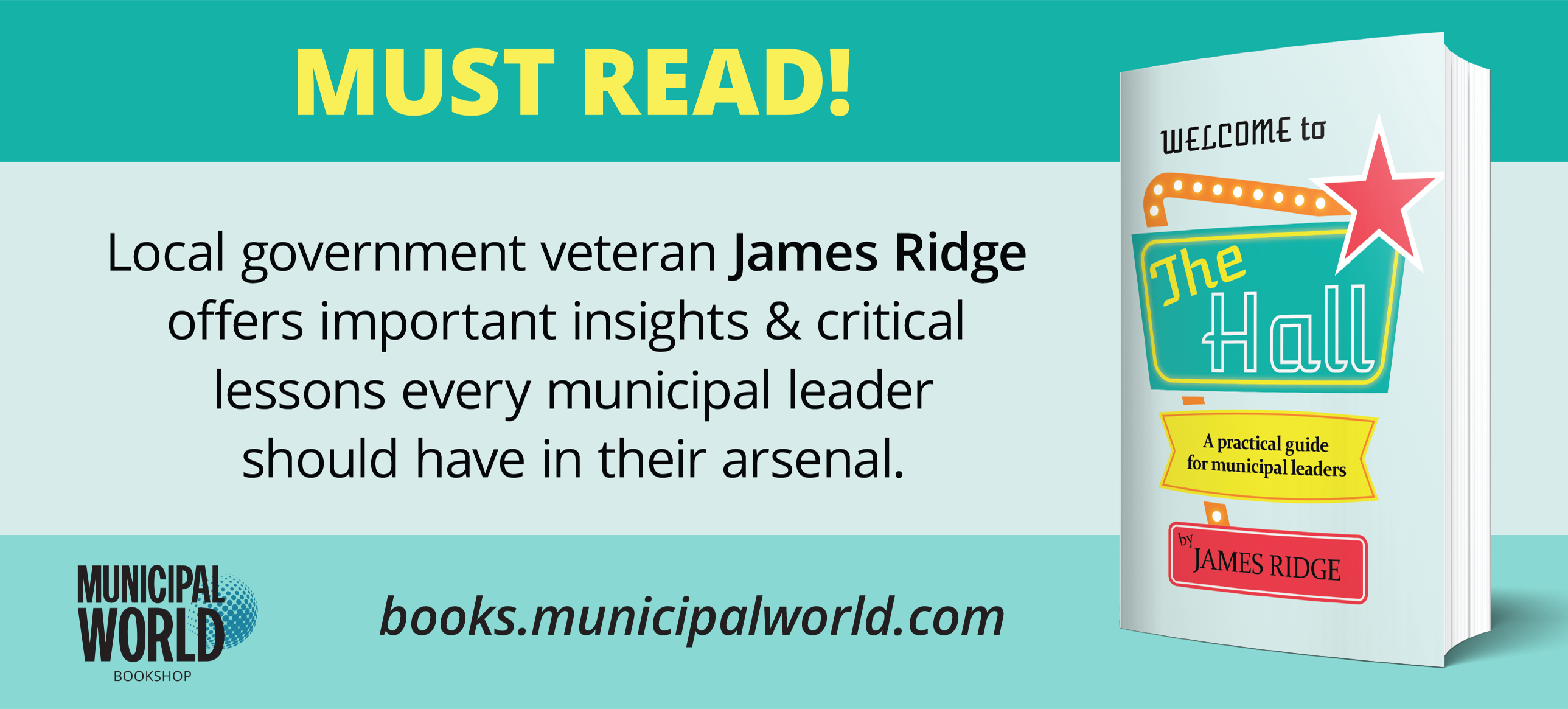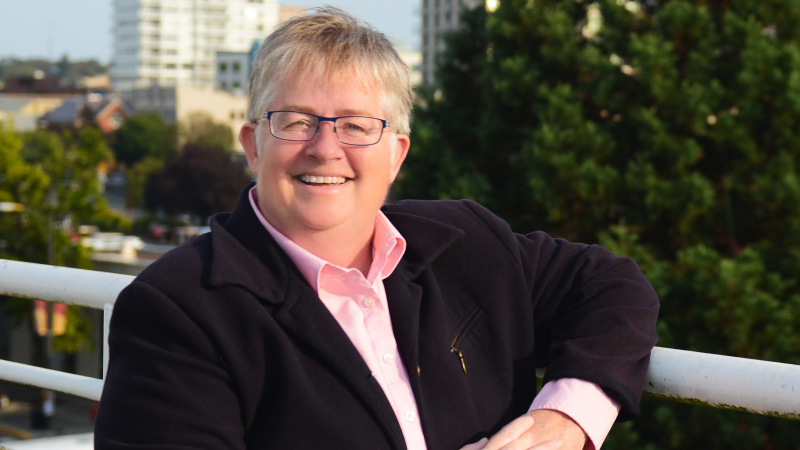AMO president celebrates community possibilities during Local Government Week
 According to Colin Best, President of the Association of Municipalities of Ontario (AMO) and Halton Regional Councillor for The Town of Milton’s Ward One, Local Government Week celebrates what makes our high quality of life possible across the province. Photo: AMO
According to Colin Best, President of the Association of Municipalities of Ontario (AMO) and Halton Regional Councillor for The Town of Milton’s Ward One, Local Government Week celebrates what makes our high quality of life possible across the province. Photo: AMO
Local Government Week celebrates the many ways municipalities contribute to making our high quality of life possible says Colin Best, President of the Association of Municipalities of Ontario (AMO).
Local Government Week, which in Ontario takes places during the third week of October, highlights the important role of local government, its successes, and the professionals who have dedicated themselves to their communities.
“We celebrate it because without local governments, most of the functions that you have in society wouldn’t happen,” said Best, a Halton Regional Councillor for the Town of Milton’s Ward One. “Anything from your water to your electricity, to the roads you drive on, to the schools you attend, and also all the services we provide to both the recreational, cultural, and planning for the area. It’s celebrating all of that.”
Push for Healthy Democracy
Local governments today face many challenges. Everything from fixing potholes to finding local solutions to climate change. These challenges are not only financial, but generational.
This is why, Best said, AMO created the Healthy Democracy Project. Building from AMO’s We All Win campaign, the Health Democracy Project is designed to promote the value and importance of municipal governments while focusing on the importance of diversity of leadership and perspectives.
The aim of the project is to attract a more diverse field of candidates to municipal office, support elected officials, promote more respect for people engaged in democratic processes, encourage greater participation in local democracy, and promote greater civic engagement.
Best said the hope is to not only get more people informed about local government, but also educated on what they can do when they involve themselves at either the political or staff level. After all, he adds, without effective staff, nothing gets done. And as he is quick to point out, there are many big challenges these days that need to be addressed.
One big challenge, said Best, is what he called “a generational change” in the public workforce, where many Baby Boomers are retiring. To face this challenge, AMO is also launching a project called the Workforce Development Project. This project will see partners in the education field, alongside the Association of Municipal Managers, Clerks and Treasurers of Ontario (AMCTO), working to highlight to members of the public that they could have a career in municipal government.
But overcoming the obstacles will take more tools than municipalities currently have.
“We’re working on at both AMO and [Federation of Canadian Municipalities] FCM to say that the way that municipal governments were financed were fine for the 1840s, but they don’t work good for the 2020s,” Best said. “We need a new arrangement that basically grows with the economy and also fits our needs. As has been pointed out by AMO staff and FCM staff, we have 60 per cent of the infrastructure, but only nine per cent of the revenue. So no matter what the province’s announcements, we’re still behind anytime and growth is not paying for itself.”
Look to the Future
Best has often found himself in a position to talk with young people looking to venture into the local government space. And that includes people looking at careers in either an elected or a staff capacity.
The most appealing thing about the municipal space is its sometimes relatively speedy results. Best said there are great staff at both the local and regional level. And when a problem is brought forward by a resident – again, depending on the situation – staff can get the problem fixed within 24 hours.
Accomplishing these fixes takes a well-trained and committed group of people. In other words, Best said, there needs to be a passion to serve. But there also must be a passion for looking 20 or 30 years into the future to make decisions for what will be of the best interest for the community.
“If you want your children and grandchildren to have a great community, you can have a role in it, “Best said. “It’s like the old saying of the people that plant trees are the ones that are never going to live under the shade of them. You’re planning for your family’s future.”
Restore the Public Trust
While being involved in the public service has its challenges, so does being an elected figure. Those challenges have led to an increasing sense of disinterest or distrust in politicians at all levels.
In the 2022 Ontario municipal elections, 553 positions were uncontested. Even more troubling, the average voter turnout in Ontario was 36 per cent in 2022, down from 38 per cent in 2018.
Best said the hope is that the Healthy Democracy Project can rebuild lost public trust.
That 2022 turnout was “very disappointing” to Best, but his own experiences have left him hopeful. His goal is to get those turnout numbers back over 50 per cent come Ontario’s next municipal elections. That hope may stem from his own upbringing in a family that focused on public service.
“One thing my parents always taught me: you only get out of a life what you put into it,” Best said. “The same applies to your community. If you don’t want to put anything into it, why do we expect anything out?
“I always love these people that never come out to meetings. They never highlight what they want to see. They just complain about what you’re doing. We need to change that. How can I represent you unless you’re telling me what you want?”
Challenges and Passions
Best has been involved in the municipal sector for 34 years. Despite challenges and disappointments, he is dedicated to creating change in his community.
While he loves his role on council and with AMO, there are certain frustrations he would rather do without. There is a perception the local government sector is in worse shape than ever. Best does not agree. “It’s just a negative perception,” he said.
There have always been challenges for local politicians to face. Best’s mother first got him interested in the idea of public service. She would bring out news articles dating back to the 1960s that showed there were just as many challenges decades ago as there are today.
All too often these articles follow the old newspaper motto, “If it bleeds, it leads.” Unfortunately, Best said, the good news does not get printed as often or shared as widely.
There are also the seemingly never-ending complaints from people, some of whom Best describes as “frequent flyers.” Fortunately, they “pale in significance” when faced with the appreciation of people saying thank you for doing this or that.
It is that feeling that Best loves most about his job. It is also why he continues to say local government is the order of politics where the best results are possible.
Best also quotes FCM President Scott Pearce, who says local government is the government of proximity. Not only is it where people can see the problems, but it is where they can also see the results.
“You hear from people directly. If you’re in a grocery shop and someone confronts you with an issue, you have to deal with it right then and there,” Best said. “I’ve definitely had to do that.
“It’s like in any job: you’ve got frustrations, you can’t solve everything. We’re trying to make it a better world. It’s not easy some days, but in the long run, we’re making it better.” MW
✯ Municipal World Executive and Essentials Plus Members: You might also be interested in Richard Tindal’s article: Limitations on municipal government 50 years later.
Sean Meyer is Digital Content Editor for Municipal World.
Related resource materials:



